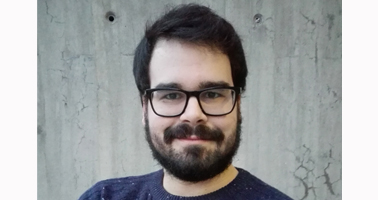Past Event: Oden Institute Seminar
Guillermo Lorenzo, Oden Institute for Computational Engineering and Sciences, The University of Texas at Austin, USA Department of Civil Engineering and Architecture, University of Pavia, Italy
3:30 – 5PM
Tuesday Apr 25, 2023
POB 6.304 & Zoom
The current clinical management of prostate cancer (PCa) enables its detection at early organ-confined stages by combining regular screening and patient classification in risk groups. Although these newly diagnosed tumors do not usually pose a threat to the patient, most PCa cases are prescribed a radical treatment immediately after diagnosis (e.g., surgery or radiotherapy). However, the limited individualization of the clinical management beyond risk-group definition has led to significant overtreatment and undertreatment rates, which might adversely impact the patients’ lives and life expectancy, respectively. Thus, PCa is a paradigmatic disease in which an individualized predictive technology could make a crucial difference in clinical practice, thereby separating less aggressive tumors that could be safely monitored from lethal tumors that require immediate treatment. To address this critical need, we can use routine clinical and imaging data to construct and parametrize personalized mathematical models of PCa growth including the key mechanisms involved in this pathology. Then, we can run computer simulations with these models to forecast the growth of a patient’s tumor, which may assist physicians in clinical-decision making. In this seminar, I will show that these models can reproduce tumor growth over the local anatomy of a patient’s prostate extracted from imaging data, along with the dynamics of the Prostate Specific Antigen (PSA, a ubiquitous biomarker in PCa clinical management). I use Isogeometric Analysis to accurately and efficiently handle the challenges arising in mathematical modelling of PCa growth and the complex anatomic and morphologic features involved in this problem. I will also discuss the importance of the inhibitive effect of growth-induced mechanical stress on PCa and how the compression exerted by concomitant benign prostatic hyperplasia dramatically impedes tumor growth. Finally, I will argue that these imaging-based models constitute a promising computational technology to assist physicians to provide a personalized clinical management of PCa.
Guillermo Lorenzo graduated with honors in MSc Civil Engineering from University of A Coruña (Spain) in 2013, where he then completed an MSc Introduction to Research in Civil Engineering in 2014. He also obtained his PhD with summa cum laude mention at the University of A Coruña (Spain) in 2018, where he started his research on computational modelling and simulation of prostate cancer growth within the ERC Starting Grant project MuSIC under the supervision of Prof. Hector Gomez. Dr. Lorenzo has received multiple awards for his academic record during his doctoral and engineering studies, including extraordinary awards from University of A Coruña, the Galician Regional Government, and the Spanish Ministry of Education. As a postdoctoral researcher, Dr. Lorenzo joined the Computational Mechanics and Advanced Materials Group at the University of Pavia (Italy) under the supervision of Prof. Alessandro Reali. In 2019, Dr. Lorenzo came to the Oden Institute thanks to a Peter O'Donnell Jr. postdoctoral fellowship, where he has been collaborating with Prof. Thomas J. R. Hughes and Prof. Thomas E. Yankeelov. Currently, he is the recipient of a Marie Skłodowska-Curie Fellowship to support his research at both the Oden Institute and the University of Pavia (Italy). Dr. Lorenzo’s work focuses on computational modeling and forecasting of prostate cancer growth and treatment response on a patient-specific basis. He has also worked in modeling the response of breast tumors to neoadjuvant therapy and the prediction of spatiotemporal spread of COVID-19 infection. In general, his research interests span the application of mathematical models and computational methods to better understand the mechanisms underlying the development and treatment of human pathologies, such that they can be exploited to forecast disease evolution and predict clinical outcomes to guide decision-making.
